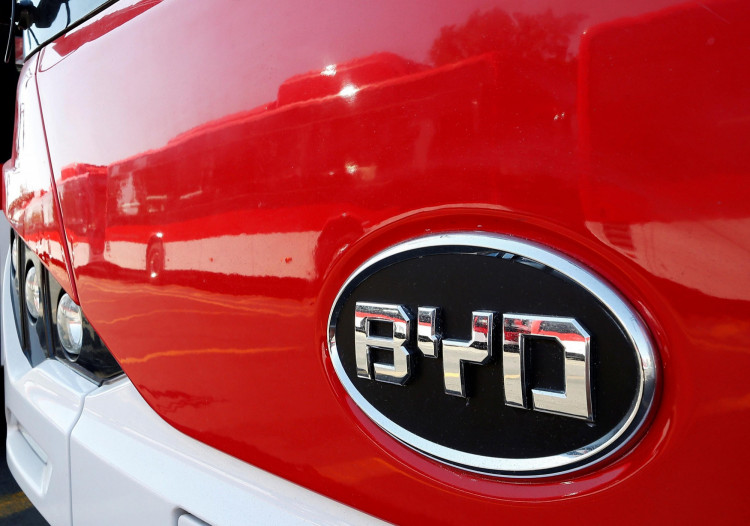Chinese electric vehicle manufacturer BYD unveiled a new fast-charging technology capable of adding 400 kilometers (249 miles) of driving range in just five minutes, a development that has propelled its shares higher and intensified competition in the global EV market. The announcement marks a significant stride in BYD's ongoing effort to close the gap with Tesla and alleviate consumer range anxiety, a key hurdle in broader electric vehicle adoption.
The new charging platform, dubbed "Super e-Platform," boasts peak charging speeds of 1,000 kilowatts-double the maximum rate of Tesla's latest V4 Superchargers, which peak at 500kW. BYD introduced the technology at a launch event in Shenzhen on Monday, where company founder and chairman Wang Chuanfu emphasized the company's focus on making EV charging times comparable to gasoline refueling.
"In order to completely solve our users' charging anxiety, we have been pursuing a goal to make the charging time of electric vehicles as short as the refuelling time of petrol vehicles," Wang said. "This is the first time in the industry that the unit of megawatt has been achieved on charging power."
BYD's Hong Kong-listed shares jumped more than 6% shortly after the open on Tuesday, hitting a 52-week high before trading around 4.2% higher. The stock is up more than 50% year-to-date. Its Shenzhen-listed stock price also rose by over 2% before paring gains.
The Super e-Platform will initially be available in two new vehicles: the Han L sedan and Tang L SUV, both priced starting at approximately 270,000 yuan (around $37,330). Pre-sales for both models have already begun in China.
As part of its rollout, BYD announced plans to construct more than 4,000 ultra-fast charging units across China. However, the company has yet to disclose how much it intends to invest in building the network or provide a clear timeline for deployment. Currently, most BYD owners rely on third-party charging infrastructure, underscoring the significance of BYD's commitment to expanding its proprietary network.
The announcement comes as the company continues its aggressive push to overtake Tesla in the global EV race. BYD sold 1.76 million vehicles in 2024, just shy of Tesla's 1.79 million units. Notably, 90% of BYD's sales are in China, with a large portion stemming from its hybrid vehicle offerings.
Industry analysts view the fast-charging breakthrough as a pivotal move. Xing Lei, an independent China autos analyst, described the platform as "out of this world" and a "heartbreaking" development for foreign competitors. "Just when everybody's focus seems to be turning toward smartification, BYD comes right back and says: no no, we are not done with electrification yet," Lei posted on LinkedIn.
While the technology has the potential to reshape EV charging behavior, some experts caution that consumers prioritize overall battery range and convenience over sheer charging speed. "Speedier charging is definitely a plus, but it ranks behind overall battery range and convenience of charging ports as priorities for EV owners," Michael Dunne, CEO of Dunne Insights, told CNBC.
Nevertheless, Dunne acknowledged that the new platform could change how EV drivers approach charging. "Few EV owners charge their car from zero to full battery charge. Instead, they tend to top up like we do with our phones. So, the '5-minute charge' could change that behavior," he added.
BYD's announcement arrives at a time when several automakers are exploring diverse solutions to mitigate range anxiety. Mercedes-Benz recently announced its new all-electric CLA model would be capable of recharging 325 kilometers in 10 minutes. Separately, Chinese EV competitor Nio unveiled a partnership with battery manufacturer Contemporary Amperex Technology (CATL) to build the largest battery-swapping network for passenger vehicles, with CATL committing a 2.5 billion yuan ($350 million) investment.
Earlier this month, BYD launched a sale of its Hong Kong shares aimed at raising up to $5.2 billion, with proceeds earmarked for research and development, among other initiatives. The company did not comment on whether a portion of the funds will be directed toward the charging infrastructure buildout.




